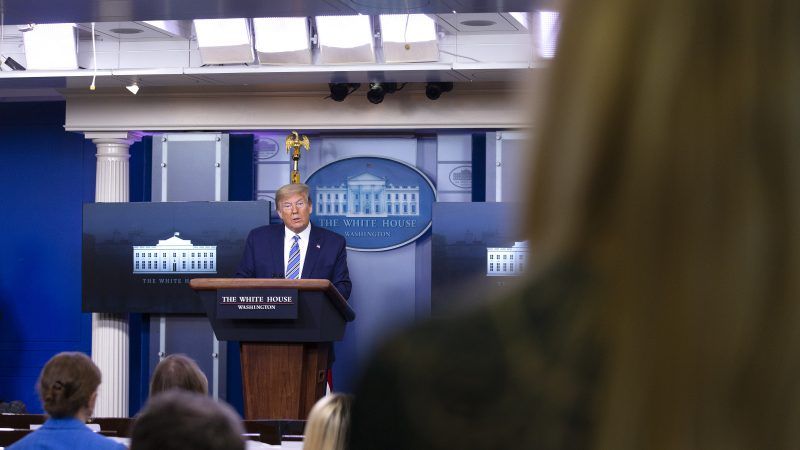The Media Failed by Giving People What They Want
Whatever lies the press is telling us, they are ones that at least some of us want to hear.

Concerned about deep political divisions ripping apart the United States? Relax—there's at least one issue on which there's an emerging consensus across the political spectrum.
That is that the press has failed.
President Trump, in his remarks on January 6 before a mob of his supporters disrupted Congress, said, "We don't have a free and fair press. Our media is not free. It's not fair. It suppresses thought. It suppresses speech, and it's become the enemy of the people. It's become the enemy of the people. It's the biggest problem we have in this country."
It was not just Trump and the Republicans expressing this view. President Obama's statement on "today's violence at the Capitol" said, "for two months now, a political party and its accompanying media ecosystem has too often been unwilling to tell their followers the truth—that this was not a particularly close election and that President-Elect Biden will be inaugurated on January 20." The Senate Democratic leader, Chuck Schumer, returning to the Senate floor after the disruption, denounced what he called "a demagogic president, the people who enable him, the captive media that parrots his lies."
Nikole Hannah-Jones, the Pulitzer-Prize-winning reporter for the New York Times Magazine, tweeted, "Trump placed open white nationalists all throughout his admin from the beginning and we—mainstream media, polite society—normalized that and we should all be absolutely appalled." She named one "mainstream media" outlet in particular: "MSNBC was running Trump's speeches in full and giving platform to disinformation trolls from Trump Administration almost his entire presidency."
The president of the NAACP Legal Defense and Educational Fund, Sherrilyn Ifill, tweeted, "The obsession of white journalists w/understanding white Trump voters blinded them to pursuing the more informed perspective of Black people, whose vantage point provides a clear look at precisely what is broken in American democracy."
James and Kathryn Murdoch, in a statement, said, "Spreading disinformation—whether about the election, public health or climate change—has real-world consequences. Many media property owners have as much responsibility for this as the elected officials who know the truth but choose instead to propagate lies. We hope the awful scenes we have all been seeing will finally convince those enablers to repudiate the toxic politics they have promoted once and forever." James is a son of Rupert Murdoch, who controls the Wall Street Journal, New York Post, Fox News Channel, and other outlets.
Ok, maybe the political divisions on this issue aren't quite so nonexistent. While Trump and his critics both say the press is a problem, they disagree on how. Trump thinks the problem is the press has been too hostile. Trump's critics think the problem is the press has been too pro-Trump—"captive," in Schumer's words.
Already, some news and opinion outlets, such as CNN, have aired calls for utilities to deny carriage to competing outlets.
A healthier approach than having phone companies or cable companies or internet service providers police the content would be for the free market to help by providing consumers information to make intelligent choices. At least two startups, Newsguard and Credder, are aiming to make a profit by guiding readers to more trustworthy news outlets.
The editor Alana Newhouse sees in the brokenness of the current moment an opportunity for new beginnings: "Establish a newspaper, one people can see themselves in and hold in their hands.…Give up on our current institutions; they already gave up on us," she advises in a recent piece.
Seeing the failures of the press as a business opportunity is tempting, and doubtless some visionary and hardworking entrepreneurs will find a way to make money by improving on what now exists. But even a startup will come up against the hard reality that in free, democratic capitalism, just like politicians tell voters what they want to hear, the press tells readers what they want to hear. That's not a way of making excuses for either politicians or television producers or newspaper editors; I have been a harsh critic of all three.
But a country, on some level, gets the politicians it deserves, just as it gets the press it deserves. So the across-the-political-spectrum tendency to blame the media may itself be a sign of a kind of denial, a way of avoiding confronting one of the hardest truths of all. Whatever lies the press is telling us, they are ones that at least some of us want to hear.


Show Comments (454)